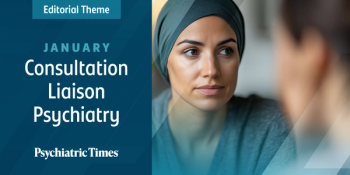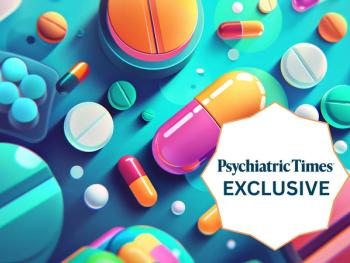
NTX-253 enters phase 1 trials, exploring a novel approach to schizophrenia treatment with potential for improved safety and efficacy.

NTX-253 enters phase 1 trials, exploring a novel approach to schizophrenia treatment with potential for improved safety and efficacy.

Psychiatric Times embraces innovation with interactive digital issues and a new print format, enhancing accessibility for psychiatric clinicians.

Acceptance paves the way for a critical trial of COMP360, a synthetic psilocybin that has the potential to transform PTSD care.

The FDA has granted Breakthrough Therapy designation to Alkermes' alixorexton for narcolepsy type 1, which could offer hope for improved wakefulness and reduced daytime sleepiness.

Cognition Therapeutics shares zervimesine's promising phase 2 results, showing safety and improved symptoms in dementia with Lewy bodies.

Psychiatric Times is adapting to the evolving media landscape, focusing on impactful stories and insights, starting with schizophrenia and lifestyle psychiatry.

Psychiatry is the medical specialty that wrestles with the included middle—requiring judgment, patience, and humility.

These are the 2 winners of the Hanusol Contest!


Explore the intersection of light and darkness through the lens of Hanukkah and the Winter Solstice, revealing insights on peace and human experience.

Explore the vital role of consultation liaison psychiatry in enhancing patient care and emotional well-being in complex medical conditions in our January 2026 theme!

Xanomeline/trospium emerges as a groundbreaking schizophrenia treatment, showcasing efficacy and safety while highlighting challenges in clinical adoption.

MapLight Therapeutics advances treatment for Alzheimer disease psychosis with FDA Fast Track designation for ML-007C-MA, targeting hallucinations and delusions.

Integrating arts and humanities into psychiatry enhances patient recovery, fosters connectedness, and enriches clinician engagement, transforming mental health care.

Psychiatry explores the complex interplay between obesity and mental health, advocating for integrated care to enhance treatment outcomes and reduce stigma.

Read part 1 of our lifestyle psychiatry special report, all in one place!

Biohaven's BHV-7000 fails to reduce depressive symptoms in a phase 2 proof-of-concept study.


Clinicians can guide patients with bipolar disorder in setting flexible, achievable New Year’s goals, enhancing motivation and stability throughout mood fluctuations.

Explore the psychological significance of New Year’s symbols, from resolutions to traditions, and discover how they inspire renewal and hope.

What disease states are most prominently featured in recent research? Learn more in this exclusive article.

Check out the pipeline updates from December!

OpenAI's shift from a nonprofit to a profit-driven entity raises concerns about user safety and ethical AI development amidst psychological consequences.

Discover groundbreaking findings on digital therapeutics and medications for schizophrenia and depression, showcasing safety and efficacy in recent studies.

Explore innovative treatments for schizophrenia, depression, and dementia, focusing on new medications and holistic care approaches for better patient outcomes.

Need CME credit? We've got you covered.

Explore innovative approaches to mental health care, from jail diversion programs to addressing burnout in female physicians, enhancing patient outcomes.

Review the news from this year's Clinical Trials in Alzheimer's Disease conference.

A psychiatric reflects on a true gift, envisioning a future of hope, healing, and inclusion and celebrating the power of unity and compassion.

See the variety of commentary, news, and happenings in artificial intelligence (AI) and psychiatry throughout this year.